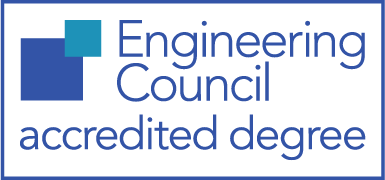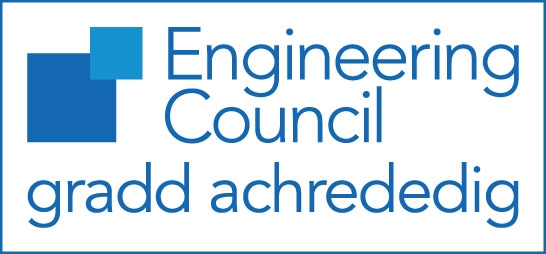Engineering Council


Accredited Degree Logo - English

Accredited Degree Logo - Welsh
The Engineering Council sets the overall requirements for the Accreditation of Higher Education Programmes (AHEP) in engineering, in line with the UK Standard for Professional Engineering Competence (UK-SPEC).
AHEP sets out the standard for degree accreditation. It also outlines the purpose and application process for universities that wish to secure or maintain accreditation of their programmes. The standard for engineering degrees has been developed through consultation with the engineering profession and includes input from employers and academics.
Degree accreditation is undertaken by sector specific professional engineering institutions under licence from the Engineering Council. These institutions interpret the standards as appropriate for their own sector of the profession and use them when deciding whether degree programmes meet the requirements to be awarded ‘Engineering Council accredited degree' status.
AHEP was first published by the Engineering Council in 2004, and adopts the same outcomes-focused approach as UK-SPEC. It was reviewed in 2013 with its latest edition published in April 2014. Since 2006, the Quality Assurance Agency (QAA) has adopted the Engineering Council’s learning outcomes as the subject benchmark statement for engineering.
−
Programmes may be accredited as fully or partially meeting the education requirements for registration as either an Incorporated Engineer (IEng) or a Chartered Engineer (CEng). AHEP sets out the output standards expected from each of the following:
-
Bachelors and Bachelors (Hons) degrees (accredited as fully meeting the education requirements for IEng registration)
-
Bachelors (Hons) degrees (accredited as partially meeting the education requirements for CEng registration*)
-
Integrated Masters (MEng) degrees (accredited as fully meeting the education requirements for CEng registration)
-
Other Masters degrees (accredited as partially meeting the education requirements for CEng registration)
-
Key principles and reference points are provided for the accreditation of EngDs.
*Further learning to Masters level is required to fully meet the education requirements for CEng registration.
All honours degrees accredited since 1999 as partially meeting the education requirements for CEng also fully meet the educational requirements for IEng registration.
−
-
Science and mathematics
-
Engineering analysis
-
Design
-
Economic, legal, social, ethical and environmental context
-
Engineering practice
-
Additional general skills
Download AHEP
Click here to download ‘The Accreditation of Higher Education Programmes: Third edition’. All accredited degrees taught from September 2016 should align with this edition
… (Read more)
Download a previous edition of AHEP
Visit our publications archive to view earlier editions of AHEP. If the intake date of an accredited degree is earlier than August 2016 it may be aligned with the second edition of AHEP
… (Read more)
Accreditation
Accreditation is a mark of assurance that a degree programme meets the standards set by the profession. Learn more about accreditation here
… (Read more)
Accredited course search
Find a degree programme that partially or fully satisfies the education requirements for IEng or CEng registration using our course search
… (Read more)
